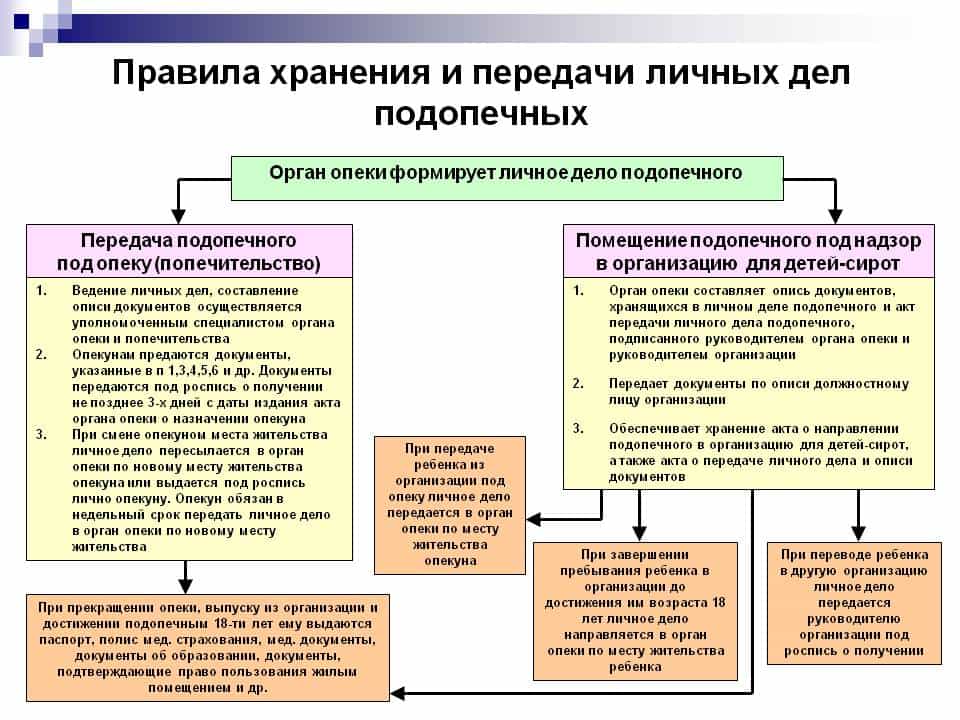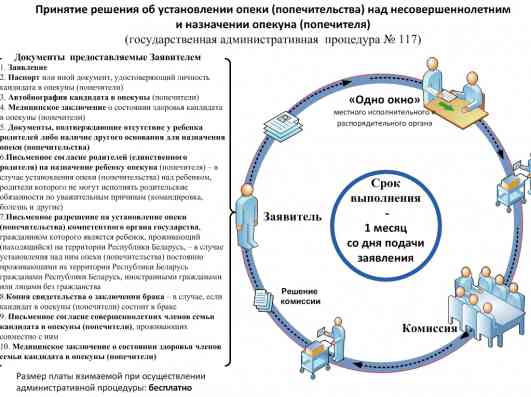How to issue guardianship - order and important points
Quite often there is a situation in which a child is left without parental care. In this case, the state is obliged to take measures to resolve this issue and provide the child with complete safety, upbringing, materially and psychologically comfortable living. - this is one of the ways to provide such assistance to the child.
According to the definition, guardianship is a type of family arrangement for citizens who have not reached the age of majority (14 years old) and are left without parental care. Guardianship is full and voluntary.
Let's consider each of them in more detail and highlight the most important and significant points.
When is voluntary guardianship provided for?
Voluntary guardianship is established in the presence of the following circumstances:
- if the parents temporarily live separately from the child, in another city or country, for example, in order to find a job;
- due to a business trip of parents for a long period of time, for example, when working on a rotational basis;
- when the child has not reached the age of 16 and lives in another city.
Guardianship in this case is formalized on a voluntary basis by submitting a special application. Some additional circumstances must be indicated in the document. For example, we are talking about the amount of payments for the maintenance and upbringing of a child.
When can full custody of a child be allowed?
Full guardianship is provided to citizens who meet the requirements established by law and in the presence of certain circumstances. The grounds for formalizing full guardianship is a situation when the parents do not bring up the child and do not provide him financially.
It is impossible to independently renounce parental rights, however, there is an option in which the parent writes an official permission to adopt a child. In this case, the rights and obligations are transferred to another person.
If the parent does not want to give up parental rights, however, continues to neglect their exercise, the law provides for the deprivation of parental rights and further removal of the child from the family. In the presence of any of such facts, it is transmitted to other persons in full.
Legal requirements for guardians
You can find out in detail how to arrange guardianship in the guardianship and trusteeship service. An employee of the department will advise on this issue and provide a list of documentation that must be prepared in order to obtain the official status of a guardian.
In addition to documents, a citizen who applied for custody of a child must meet certain requirements:
- be legally capable and of age;
- he must not have a conviction for intentionally causing harm to a person;
- have positive personal and moral characteristics.
In addition to these requirements, it is imperative to obtain the consent of the child himself.
Cannot qualify for custody:
- people with alcohol or drug addiction;
- citizens already deprived of parental rights;
- persons who have been convicted of serious crimes;
- people who do not have special training for raising a child (except for the next of kin);
- persons suffering from various forms of complex diseases (oncology, tuberculosis, diseases of the central nervous system).
If a citizen does not have the indicated contradictions for obtaining guardianship, then he can start preparing the necessary documentation.
Documentation Required to Obtain Guardianship
Citizens who have expressed a desire to obtain custody of a child who has not reached the age of majority should contact the local one that deals with issues related to the provision of custody.

When applying, the following package of documentation is submitted:
- Passport of a citizen wishing to become a guardian.
- Application of the established form.
- Certificate from the place of permanent employment, which will indicate the citizen's salary for the last year and his position. A similar certificate will need to be submitted from the spouse's place of work.
- Certificate of the applicant's ownership of the living space.
- Medical report on the passage of a medical examination.
- Certificate from the Department of Internal Affairs about the absence of a criminal record and criminal prosecution for the grave crimes committed.
- The act of having a marriage relationship.
- Written consent of all family members to formalize guardianship.
- Citizen's pension certificate.
- 10. Autobiography.
All documents must be correctly and neatly executed. Certificates and certificates should not contain corrections, blots, errors, and the entered data should be up-to-date. Official documents must be certified with blue seals and authorized signatures.
Child custody process
After the necessary documentation has been prepared, you can proceed to the direct process of obtaining custody of the child. The algorithm of actions is as follows;
- a citizen with a prepared package of documentation applies to the guardianship service;
- within three days after the receipt of the application, the service representative inspects the applicant's home, examines the existing living conditions, and also finds out the applicant's motivation and tries to determine his personal characteristics;
- three days later, based on the results of the survey, a special act is drawn up in two copies, which can subsequently be challenged in court;
- 10 days after the submission of documents, a positive or negative condition is made in relation to the citizen's application;
- within three days, the corresponding act is sent to the address of the citizen. Together with him, all previously submitted documents are returned, and their copies are sent to the archive of the guardianship service.
A positive decision is valid for two years and with this document a citizen can apply to any guardianship and guardianship authority to obtain information about minors in need of guardianship. If necessary, the guardian receives a referral to visit the child at his place of residence.

In the decision-making process, the opinion of the child himself is necessarily taken into account and only with his full consent can guardianship be appointed. In the future, a special act is drawn up, which has a limited period of validity and serves as the basis for placing the child under guardianship.
